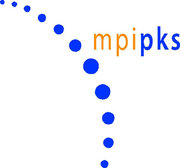Max Planck Institute for the Physics of Complex Systems

The research at the institute in the field of the physics of complex systems ranges from classical to quantum physics and focuses on three main areas, which correspond to the activities in the three divisions. The division Condensed Matter (R. Moessner) studies the quantum physics of the solid state. The nonlinear dynamics of atoms, molecules and clusters is studied with the help of semiclassical methods in the division Finite Systems (J.-M. Rost). Tools of classical statistical physics are applied to biological systems in the division Biological Physics (F. Jülicher).
One permanent research group, six temporary ones and five junior research groups strengthen and interpolate the research in and between the divisions on such topics as topology and correlations in condensed matter, X-ray in quantum optics, physics of the cytoskeleton, collective dynamics of cells, computational biology and evolutionary genomics, complex dynamics in cold gases, nonlinear time series analysis, motor systems, collective phenomena in solid state and material physics and nonlinear and relativistic optics.
Each year up to two Advanced Study Groups perform cutting edge research in a topical field of the physics of complex systems, for up to one academic year each.
Additional research support is provided by Distinguished PKS postdoctoral fellows and guest scientists focussing on topics as Bose-Einstein condensation and nonequilibrium statistics.
The institute hosts a large visitors progam with about 60 guest scientist positions (each for up to two years), and an extensive workshop and seminar program hosting about 20 events per year, including 2-3 day focus workshops, 1 week workshops and seminars of 1-2 months. The aim is to boost new promising research directions and to provide faster contact of young scientists with the rapidly evolving spectrum of new research topics in the broad field of the physics of complex systems.